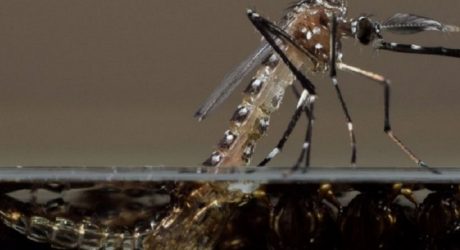Millions of genetically modified mosquitoes are to be unleashed in the wild as the fight against the Zika virus ramps up.
The Aedes aegypti mosquito, which spreads the disease, has been genetically modified by a British biotech company to pass on a “killer gene” that cuts short the life of the species’ young, which should decimate the insects’ population, curbing Zika’s spread.
Trials in Brazil have already demonstrated mosquito numbers dropping by 90 percent in what has been described as “an unprecedented level of control.”
Derric Nimmo, a bioscientist with Oxitec, an Oxford University spin-out company, told the Sunday Times: “We would expect to release about 3.3 million mosquitoes over nine months – just over 200,000 a week.
“We know this technology works very well. We know it works in very large geographic areas.
“It’s a matter of scaling up and drawing up a release strategy.”
Florida has been identified as one of the most likely places for the disease to gain a foothold and, with neither vaccines nor treatments for Zika available, regulators have provisionally approved the release of the genetically modified mosquitoes, according to a Daily Mail report.
The measure has met with some opposition, with a number of Key West residents protesting that mutant bugs carry unknown risks to the environment and to humans, and their release could deter tourists.
Dr Amesh Adalja of the University of Pittsburgh disagreed, saying: “Genetically-modified mosquitoes are a potentially path-breaking tool that will improve human life.”
Already rife in South America and the Caribbean, and a growing threat to the US, Zika is blamed for thousands of babies being born with microcephaly, a condition characterised by abnormally small heads and underdeveloped brains.
During a recent press conference in Colombia, Margaret Honein, of the Centers for Disease Control and Prevention (CDC), said that apart from microcephaly, babies whose mothers have had Zika during pregnancy may eventually acquire impaired hearing or vision, moreover.
Equally alarming, scientists in Brazil told BBC News that Zika could be responsible for yet more damaging neurological conditions affecting the babies of up to one-fifth of infected pregnant women.
The World Health Organization (WHO) has declared the disease a public health emergency and pregnant women have been warned not to travel to infected areas.
On Friday, health officials confirmed the first US death of a patient infected with the Zika virus in Puerto Rico.
The man, who was in his 70s, died from severe thrombocytopenia, a bleeding disorder caused by abnormally low blood platelets, which are needed for blood clotting.
Dr Tyler Sharp of the CDC’s Dengue Branch in San Juan told Reuters that the man was diagnosed with a rare Zika complication known as immune thrombocytopenic purpura or ITP, an autoimmune disorder in which the immune system attacks platelets.
According to Sharp, the case followed the same pattern as patients with Guillain-Barre Syndrome, a paralyzing neurological disorder linked to Zika infections in which the immune system attacks nerves.
In both cases, the autoimmune attack occurs after symptoms of Zika have cleared.
Researchers are trying to establish how Zika causes these rare disorders, Sharp said.(Caribbean 360)














